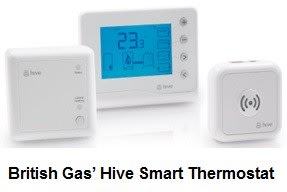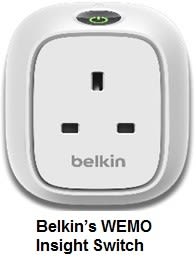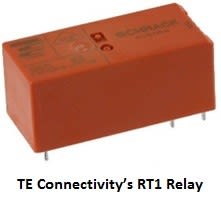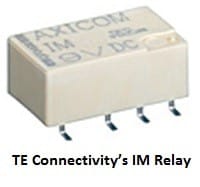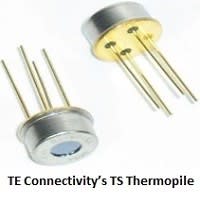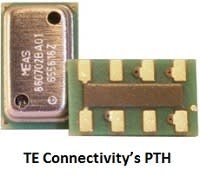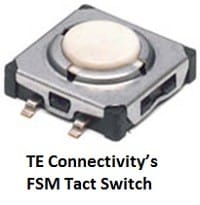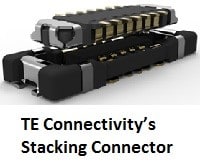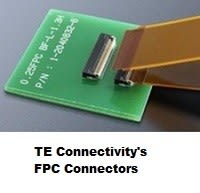How I Transformed My Life with Home Automation
Follow articleHow do you feel about this article? Help us to provide better content for you.
Thank you! Your feedback has been received.
There was a problem submitting your feedback, please try again later.
What do you think of this article?
I’m Jonathan Catchpole an engineer working for TE Connectivity’s (TE) Intelligent Buildings group. I recently changed roles and moved into a more strategic position focusing on home automation. I already owned a few switchable socket adaptors controlled by an RF remote. The remote meant that I didn’t need to move from the sofa to turn on the lights. Lazy you may say, but this also saved me money by isolating switch mode power supplies from the mains. As I further explored this field, my knowledge of home automation grew and so did the appeal to my gadget obsessed mind.
There has been a lot of talk in the press about the internet of things (IoT). For the home automation sector, IoT can be described as a collection of devices that are used to control features of the home. These devices are connected to the cloud, typically via a router, allowing the user to control these devices from a mobile device.
The first device I got my hands on was an IoT enabled smart thermostat which provided better control over my heating and remote accessibility. Coming home to a warm house after a winter trip to Denmark in January was definitely an added bonus. For this home automation example, I had selected Hive, not the most attractive thermostat on the market, but was the only one available in the UK at the time. More importantly, however, it gave me the control over my central heating that fitted my lifestyle. My home was warm when I wanted it to be and I wasn’t burning energy when it was empty.
This added heating control has saved me £120 a year on my fuel bill.
At this point, I became addicted and I spent that money saved on further customising my RF remote controlled power outlets to an IoT version which included a motion sensor. For this, I purchased the Belkin Wemo Switch and Insight Switch. They are large, but their white plastic bodies are fairly unobtrusive in a room. Now, when I walk into my home after dark with my arms full, the lights switch on automatically. When I am out of the country, the cloud controlled system turns the lights on and off at different times, giving the impression someone is in the house. I complimented this system with a motorised curtain rail, building the control system myself, but still utilising the IoT power outlets. Now, the downstairs curtains open before I walk down the stairs, greeting me every morning with sunlight.
IoT does have its downside because where I live the broadband connection isn’t great. Even though the Wemo devices are connected to my LAN by Wifi when my mobile is connected to the same LAN, all the control is done through the cloud. So switching on lights isn’t always as quick as I’d like and if I lose the internet, I lose control of my home and I’m left sitting in the dark.
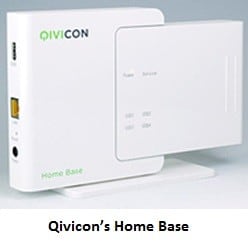
What I am getting at here is home automation completely transforms and revitalises your home environment. Whether that is saving you money on your energy bills, improving the efficiency of mundane tasks, implementing rudimental home security or just improving the wellness of a room, there is a home automation product to help. Additionally, the home automation market is expanding exponentially as more and more people see the need for greater customization and interactivity with their home environment.
In conjunction with the rising number of home automation products, there are a number of market enablers, such as IoT and big data, that are giving those start-up companies new opportunities for innovation.
With such a large selection of suppliers to choose from, I believe that it is important to have the right components giving your design the form and function to make it stand out. TE has a large range of products for this market and I’d like to take you through how they can be used to empower your home automation.
Lighting is an important part of the wellness of the home environment and with lighting moving towards exclusively LED fixtures we see an increase of high-inrush currents coming from the drivers capacitive load. The RT1 inrush and inrush power relays have been designed with advanced contact technology, enabling them to switch inrushes of up to 165A and making it ideal for building controllers and smart power outlets. These outlets and controllers power the lamps and lighting that turn your home into a warm and bright environment.
Now for the smart thermostat, it is not about switching power, but rather, visual design. With the increase of home automation, the term ‘Wall Acne’ is coming to the forefront. There are too many large devices hanging off our walls and the days of the square white thermostat are numbered. Like I said I have Hive, which has just been updated with a new version of their thermostat module. This new version was designed by the designer of Jambox and so, it looks great but overall I prefer the simple elegant design of the German based Tado. In the 21st century, sleek and low profile designs are becoming increasingly desirable. With their low form factors, TE’s IM and PE relays can help meet these needs.
Smart thermostats are entering the world of “Big Data” by collecting information on how we use our homes. This new wave of thermostats detects not only temperature but also occupancy and humidity. Occupancy is traditionally done with a PIR sensor, but would anyone really say that solution is good enough? Even in ideal situations, PIR sensors don’t give the level of control needed; I’ve often sat in my office frantically waving my arms at the sensor to get the lights to turn back on. So, a PIR sensor detects movement only, not occupancy. A possible solution would be to use a thermopile instead of a PIR sensor.
In its simplest state, a thermopile is a number of thermal couples connected in series, packaged with a thermistor as a reference. Therefore it can detect temperature differentials in a room and can be used to detect a person, whether they are in motion or not.
Temperature and humidity measurement in the same package is a common way to save space, but why not add functionality by adding pressure in the same chip with TE’s PTH? This product has ultra-low power consumption and is ideal for battery powered products while still being available in a SMD package.
With the increasing number of wireless nodes in a home, battery life has become a very important design consideration; no one wants to spend their life changing batteries. Energy harvesting has been used in wireless switches and in door and window sensors. TE’s Piezo film elements generate a small amount of energy that can be used to send a wireless signal back to a central hub. The Piezo film provides the power for the unit, thus eliminating the need for batteries. TE’s Piezo film has a level of sensitivity that can be used to detect vibration which is an innovative and discrete way to detect motion in the home.
As home automation products are typically retrofitted into the home, they are always wireless. During setup, they have to be mated to a central hub or router. Our FSM range of tact switches are an ideal way to trigger the hardware. The FSM range has surface mount, low profile, 6x6mm and 4.5x2.5mm package size versions. This range provides engineers with the flexibility to design attractive outer housing for their home automation products. An example of this product in use would be the Amazon Dash Button, which is a very creative way of getting us to shop. The unit is basically a tactile switch with wifi radio. You position it close to a consumable item, like the coffee you drink and as soon as you run out. Simply press the button and an order is sent direct to amazon. Now unfortunately, the product is not available in Europe but one can only hope.
In the home automation market, most devices are quite large, contributing to the ‘Wall Acne’ effect. There hasn’t been a drive to make these devises more compact; however, a provider of cloud services requested a smart power outlet be manufactured at half the original size. This poses a difficult question: How can we meet all the functionality requirements while staying within the physical limitations? TE can help solve these issues with our interconnect devices. First up is our range of board to board connectors: The 0.4mm stacking connector is low profile, doubled row connector with a variety positions available. If you need a larger pitch device, then our standard AMPMODU pin headers and sockets are available in a 2.54mm pitch and multiple position options. To reduce the component count, you could consider using our Compressive Board to Board connector. These are one sided connectors that use spring contacts to connect to pads on an adjoining PCB, while conducting 2amps. 2 to 10 positions are available.
Displays are often used as the human machine interface (HMI), which have fine pitch flexible circuits that then need to be connected to a PCB. TE’s FPC has pitches from 0.25mm to 1.25mm with a variety of positions available. Depending on your assembly process, you will want to select either the low force insertion (LIF) or the zero force insertion (ZIF) version. Wires are not often used in home automation products except when connecting batteries or when a simple wire antenna is being used. In that case, a wire to board connection is needed. The Micro SLP or the AMPSLIM connector would be ideal, providing a mated height of only 1.4mm. Making wire connections this way allows cable assemblies to be produced separately and the mating part of the connector can be reflow soldered to the PCB. This enables the operator to quickly and simply snap the mating parts together rather than soldering wires to the PCB, thus saving both time and money in the manufacturing process.
Everyday, innovative products are being created for automating the home and everyday, these products need equally innovative components. I hope that I have been able to show you TE’s wide portfolio of electronic components that compliment and enable these new, emerging technologies. I am extremely excited to see where this market will go as it will surely be limited only by our imagination.



